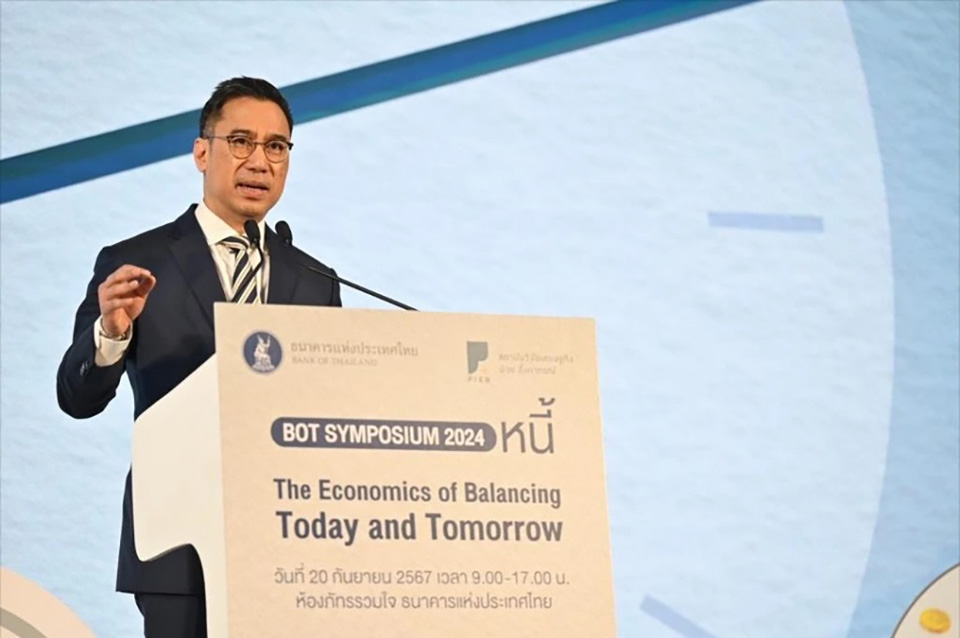
BANGKOK, Thailand – Sethaput Suthiwartnarueput, Governor of the Bank of Thailand (BoT), emphasized the importance of the central bank’s independence in financial policy-making, cautioning that short-term measures to address household debt could create long-term burdens for the nation, September 20. Speaking at the BOT SYMPOSIUM 2024, themed Debt: The Economics of Balancing Today and Tomorrow, he discussed the growing concern over Thailand’s rising household debt and the long-term effects of reactive, short-sighted government policies.
Over the past two decades, Thailand’s household debt has surged from 50% to 90% of GDP. Currently, 38% of the population is in debt, with an average debt load of 540,000 baht per person, much of which is non-income-generating. Sethaput pointed out that many lower-income households, particularly those affected by the COVID-19 crisis, are struggling to repay debts due to slow income recovery. At the same time, only 22% of the population has sufficient savings, and just 16% are saving for retirement.
The BoT Governor criticized the government’s past short-term policies, such as broad and prolonged debt moratoriums for farmers, which led to 60% of borrowers becoming chronically indebted and repeatedly defaulting. He warned that such blanket solutions create long-term financial instability.
In terms of economic growth, Thailand has experienced consistently low investment, averaging just 2% growth per year over the past decade compared to 10% before the 1997 Asian financial crisis. Only 3% of Thai businesses invest in research and development (R&D), leading to a national investment in R&D of just 1% of GDP, compared to 5% in South Korea.
On the global front, Sethaput highlighted the increasing frequency and severity of extreme weather events due to climate change, which are having profound economic impacts worldwide. Data from the World Meteorological Organization (WMO) shows that economic damage from such events has increased eightfold over the past 40 years.
He stressed the necessity of forward-looking policies, warning that short-term fixes could impose significant future costs. He advocated for responsible lending practices and better savings policies to address household debt sustainably, and for stronger institutions that support economic and business development. The BoT, he argued, must maintain its independence to ensure long-term stability.
“The central bank must be independent in its operations to uphold its long-term vision,” he said. “We cannot rely on universal solutions like interest rate cuts to solve the debt problem. Instead, we should focus on responsible lending mechanisms to directly support vulnerable groups.”
The BoT has implemented several measures to ensure long-term economic stability, such as maintaining a balanced policy mix that aligns with economic and inflation trends, while avoiding systemic risks. It also promotes responsible lending to raise financial standards and encourages better financial discipline among Thai citizens. These steps are crucial for addressing the household debt crisis and supporting the economy’s transition into the modern era.









